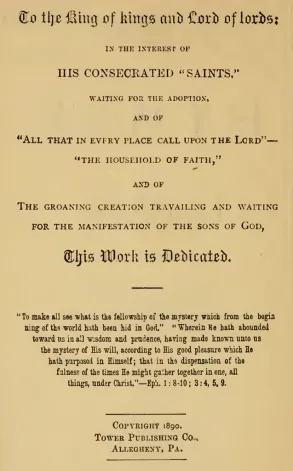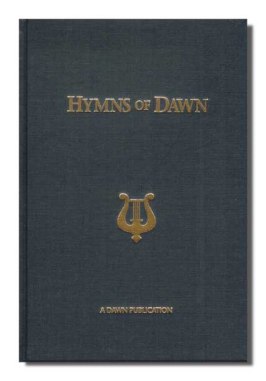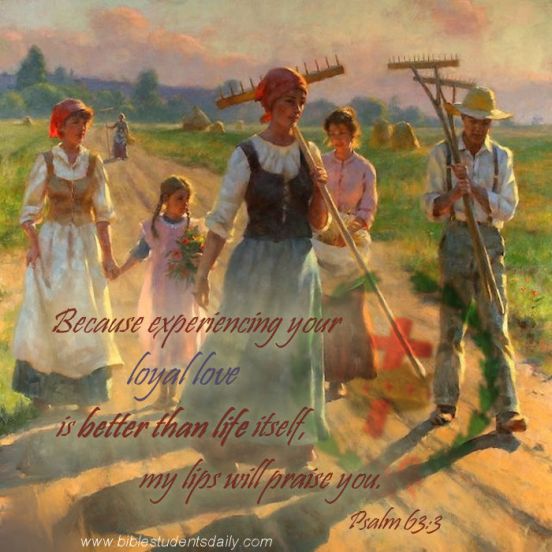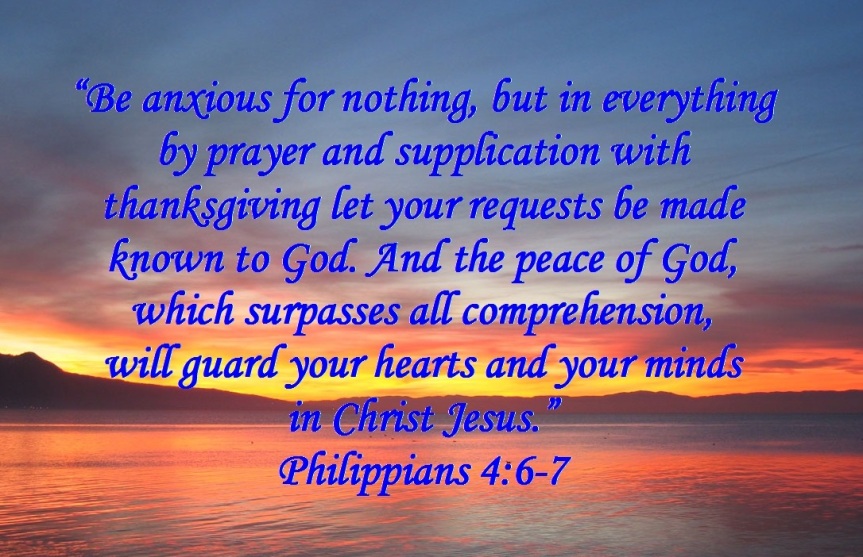Saviour, Help Us – Hymns of Dawn No. 26
“(1) Come, let us shout joyfully to Jehovah! Let us shout in triumph to our Rock of salvation. (2) Let us come into his presence with thanksgiving; Let us sing and shout in triumph to him” (Psalm 95:1,2).
“My mouth shall praise Thee with joyful lips” (Psalm 63:5).
“Until the day break, and the shadows flee away, I will get me to the mountain of myrrh, and to the hill of frankincense” (Song of Solomon 4:6).
Note: “ ‘Myrrh’ is bitter experience and the wisdom gained through such experience. ‘Frankincense’ represents praise and thanksgiving. Hymns of praise often include the Christian’s gratitude for deliverance from suffering that is beyond human endurance. Such help usually evokes praise and thanksgiving. Of course pleasant experiences also bring forth praise, but the type of praise that arises from suffering is on a higher level than praise from pleasure. Verse 6 alludes to praise that arises from suffering.
‘Until … the shadows flee away.’ The shadows of the nighttime experience of the Church will ‘flee away’ when the Church is complete. These are the shadows of the gospel night, the Passover night. Why is myrrh a ‘mountain’ and frankincense a ‘hill’? Two different Hebrew words are used. Our praise can never reach the mark of perfection. What Jesus offered at Calvary far transcends anything we can offer” (Br. F. Shallieu, Notes on the Song of Solomon, pages 37-38).
Here is a recording of Hymn No. 26 from the “Hymns of Dawn” to aid God’s people in singing and making melody in their hearts unto God.
Lyrics
1.
By thy birth, and by thy tears;
By thy human griefs and fears;
By thy conflict in the hour
Of the subtle tempter’s pow’r—
Saviour, look with pitying eye;
Saviour, help us, or we die.
2.
By the tenderness that wept
O’er the grave where Laz’rus slept;
By the bitter tears that flowed
Over Salem’s lost abode—
Saviour, look with pitying eye;
Saviour, help us, or we die.
3.
By thy lonely hour of prayer;
By thy fearful conflict there;
By thy cross and dying cries;
By thy one great sacrifice—
Saviour, look with pitying eye;
Saviour, help us, or we die.
4.
By thy triumph o’er the grave;
By thy pow’r the lost to save;
By thy high, majestic throne;
By the empire all thine own,—
Saviour, look with pitying eye;
Saviour, help us, or we die.
5.
By thy kingdom promised long;
By thy pow’r to right each wrong;
By thy church upon thy throne,
Thou will seek out all thine own;
Saving all of those who cry,
Saviour, help me, or I die.
*******
Bible Scriptures Associated With This Hymn
Psalm 18:6 (ESV) — “In my distress I called upon the LORD; to my God I cried for help. From his temple he heard my voice, and my cry to him reached his ears” (Psalm 18:6, ESV).
Psalm 34:17, 19 (ESV) — “(17) When the righteous cry for help, the LORD hears and delivers them out of all their troubles. (19) Many are the afflictions of the righteous, but the LORD delivers him out of them all.”
Psalm 50:15 (KJV) — “And call upon Me in the day of trouble; I will deliver thee, and thou shalt glorify Me.”
Psalm 102:1, 2, 16, 17, 19, 20 (NAS) —
“(1) Hear my prayer, O Lord! And let my cry for help come to You.
(2) Do not hide Your face from me in the day of my distress; Incline Your ear to me; In the day when I call answer me quickly.
(16) For the Lord has built up Zion; He has appeared in His glory.
(17) He has regarded the prayer of the destitute and has not despised their prayer.
(19) For He looked down from His holy height; From heaven the Lord gazed upon the earth,
(20) To hear the groaning of the prisoner, to set free those who were doomed to death…”
Psalm 121 (ESV) —
(1) I lift up my eyes to the hills. From where does my help come?
(2) My help comes from the Lord, who made heaven and earth.
(3) He will not let your foot be moved; he who keeps you will not slumber.
(4) Behold, he who keeps Israel will neither slumber nor sleep.
(5) The Lord is your keeper; the Lord is your shade on your right hand.
(6) The sun shall not strike you by day, nor the moon by night.
(7) The Lord will keep you from all evil; he will keep your life.
(8) The Lord will keep your going out and your coming in from this time forth and forevermore.
Matthew 9:36 (NLT) — “When he saw the crowds, he had compassion on them because they were confused and helpless, like sheep without a shepherd.“
Matthew 15:25 (ESV) — “But she came and knelt before him, saying, ‘Lord, help me.'”
John 16:24 (KJV) — “Hitherto have ye asked nothing in My name; ask, and ye shall receive, that your joy may be full.”
Romans 10:12 (ESV) — “For there is no distinction between Jew and Greek; for the same Lord is Lord of all, bestowing his riches on all who call on him.”
Hebrews 4:16 (KJV) — “Let us, therefore, come boldly unto the throne of grace, that we may obtain mercy, and find grace to help in time of need.”
The History Of This Hymn
Author — Robert Grant (1779-1838).
Composer — No information.
*******
The words below are from Reprint No. 4311-12, from the Original Zion’s Watch Tower and Herald of Christ’s Presence as documented on “Harvest Truth DataBase Version 9: http://www.htdb.one
“HELP FROM THE LORD”
OUR year text for 1909 is, “MY HELP COMETH FROM THE LORD.” (Psa. 121:2.) We have just received a large importation of most beautiful cards bearing this text and supplemented with a Calendar, the top leaf of which records “The Vow,” [see below this article] which can be torn off by those who so prefer… We trust that this beautiful text will be very impressive and helpful to all of us throughout the year. It is full of meaning, from whatever standpoint considered. If we mistake not, the Lord’s dear people never needed help more than at the present time. The difficulty with some, however, is that they do not realize their need. “When they are strong, then they are weak.” “Let him that thinketh he standeth, take heed lest he fall.” “Let us fear, lest a promise being left of entering into his rest, any of you should seem to come short of it.”—Heb. 4:1.
The text reminds us further that those who need help and who realize it should look to the Lord for it—not relying upon their own strength or wisdom nor upon the assistance of their fellows. We are not to despise assistance from any quarter, but our chief reason for receiving any assistance should be our conviction that it has come from the Lord, whether through the ear or through the eye and the printed page or however. We are to remember that we are contending against a great Adversary and wily foe, and that we are not sufficient of ourselves to conquer, but that our only hope is in abiding in the Lord’s love, by seeking to do those things which are pleasing to him and heeding the counsel of his Word and the leadings of his providence. A little carelessness along these lines, and the Adversary might readily entrap us and ensnare us and then lead us captive at his will. Ah, yes! we have the assurance of the Lord that there is but one place of safety at this time—into which more and more deeply we penetrate day by day. This place of safety is under the shadow of the Almighty, which figuratively signifies very close to the Lord. “No harm can come nigh that dwelling place,” so far as the New Creature is concerned.
Trials, tribulations, slanders may be exercised against us according to the flesh, but these cannot harm us as New Creatures, nor even disturb our peace of soul, while we are close to the Lord.
WE ARE NOT IGNORANT OF SATAN’S DEVICES
Recently we called attention to the fact that the evil spirits, the fallen angels, are to be permitted special liberties in this “evil day”; and that we might expect from them intrusions and deceptions from materializations. But while guarding that point we omitted to note another, perhaps equally dangerous, or more so, because more subtle. This we must consider now. Undoubtedly the fallen angels have had more or less power throughout the past, not merely to obsess or physically possess those who yield their wills, but power to measurably influence the minds of those who would resist them, and always by putting darkness for light. As a notable illustration of this, remember Judas, who, after brooding over the fact that our Lord’s cause was not bringing him great honor and wealth, premeditated shaking matters up, incidentally gaining thirty pieces of silver and arousing our Lord to practically assert himself and take a stand, in harmony with his power.
It was after this brooding that he was still further offended, while he ate at the Lord’s table and said, “Is it I?” And when the Lord had intimated that it was he who would betray him, he became more determined to do so. We read, “Satan entered into him.” His does not seem to be the case of obsession, but rather of domination of the mind. Satan, who had been striving to gain control, got the mastery when Judas was angry with the Lord’s reference to him as a traitor.
Our thought is that the evil spirits have been restrained in considerable measure from intruding upon the minds of men. Otherwise the world would have become Bedlam long ago. But our thought now is that their liberties with the saints will be increased, with a view to the closing test or decision in respect to character, which is now due. “Judgment must begin at the house of God,” but it is to extend in this hour of temptation or trial to “all them that dwell upon the face of the whole earth.” That which will begin with the Church will end with the world, producing the most awful state of affairs imaginable, “A time of trouble such as never was since there was a nation.” (Dan. 12:1.) This power of intrusion will contain, we believe, evil suggestions, promoting slanders and back-biting and temporarily, at least, derange the judgment and lead to violences of various kinds, of which the same person, under other circumstances and conditions would not have thought. In a word, the difficulty will be a dementia of passion, strife, hatred and unreason.
We see evidences along this line at the present time and it is our duty to sound the warning for the benefit of those not already so twisted as to be unable to appreciate the situation. Such manifestations of evil spirits—malice, hatred, envy, strife, evil-speaking, back-biting, slanders, etc., circle around the VOW and those who have taken it, with violence and opposition for which we cannot otherwise account. Those under this influence seem impervious to argument, to reason, but open to every imaginable suggestion of evil. They seem to lose entirely the spirit of love, the spirit of Truth, the spirit of a sound mind. At first we were dazed by such conditions, affecting some whom we had highly esteemed, but at last the solution above stated has come. In the light of it the whole situation is clear. It bids us have sympathy for the deluded ones and be on guard for ourselves.
To illustrate: One dear Brother, to whose violent letter of opposition we adverted in our issue of October 15, afterwards came dangerously near a mental collapse, in connection with which he received spirit messages by raps, yet was so off guard that it did not occur to him to question the source. His mind, though previously humble, was led to aspire to the management of the WATCH TOWER, and he found types and evidences in the Bible which led him to assume that God purposed a change in the management of the Harvest Work. It was under the influence of this erroneous sentiment that this dear Brother, whom we have dearly loved, and still love, wrote us a terribly bitter letter, for which he has since apologized in most kindly terms. He now freely acknowledges that he was under demoniacal influence and inspiration. He has recovered his balance; praise the Lord! But we regret that he has not yet taken the VOW or RESOLUTION to God; that he apparently does not yet see that it was this very item by which the Adversary gained an entrance to his mind. Ah! if the dear Brother had taken the VOW, how it would have proved a power of the Lord for his protection, along the very lines of his besetment:—
(1) Desiring God’s rule more and more in his own heart, he would have asked God to keep him humble and in fear lest he should attempt to grasp something which the Lord had not put into his hands.
(2) Would not the Resolution to more carefully than ever, if possible, guard every thought and word and deed have helped this dear Brother to avoid every high imagination and have kept him from saying with his tongue and writing with his pen the acrimonious words which he has since retracted?
(3) Would not the declaration of the VOW to remember daily the harvest laborers and to consider his own privileges in the harvest work have helped this dear brother, by filling his mind and hands with the work the Lord had already committed to him, and thus have kept him from hankering after, and endeavoring to grasp, what the Lord had not committed to him?
(4) Would not the Resolution to be on guard against Spiritism and Occultism in every form have warned the brother against the spirit-rappings, visions, etc., which almost worked his ruin? We believe that it surely would have done so and we are hoping yet that the Brother will heartily put himself under that VOW to the Lord—whether calling it a VOW or a RESOLUTION.
Dear brethren, we cannot express to you our deep love for you all, and interest in your welfare, nor can we express our sorrow that our endeavor to help you by suggesting the VOW, or RESOLUTION, to the Lord should be so unkindly received by some, and awaken in them such opposition and animosity. The more often we read the VOW, the less do we see in it to cause offense to any sound-headed or sound-hearted brother or sister—the less do we see that any one could reasonably oppose, unless his judgment were misguided by the evil spirits, as in the case above cited. We are not, by any means, condemning those who have not taken the VOW. That is a matter of their own business. And if otherwise they are children of God and manifest his spirit, we should recognize and treat them and love them in every sense of the word as brethren. If they do not yet see the importance of this safeguard, we believe that they will see it later. Our urgency on this subject is similar to that of the Apostle, when he says, “I beseech you therefore, brethren, by the mercies of God, that ye present your bodies a living sacrifice, holy acceptable to God, which is your reasonable service.” (Rom. 12:1.) And “Make straight paths for your feet, lest that which is lame be turned out of the way.”
After what we have witnessed of the power of evil operating in the minds of some and producing characteristics which the Apostle denominates “Works of the flesh and the devil,” we can scarcely be surprised at anything which the Adversary might accomplish along these lines. But while we fear lest we should come under any such influence ourselves, and while we watch and pray lest we enter into temptation, we should not be cast down, nor hindered in any measure or degree, in respect to the service of our King. He [R4312 : page 15] is able and willing to keep in perfect peace those who are trusting him, those who are following his leadings and coming close to him, even “under the shadow of the Almighty.” The VOW has helped many to take this stand, thank God! And in proportion as it is taken, we believe that it will still further help, not only those who have taken it, but also those who have not taken it, but have heard and appreciate, in a measure, its warning voice. The words of the Apostle, “Who shall be able to stand in that evil day,” never seemed more full of meaning to us than now, and never have we felt more than now our need of every piece of the Divine armor, and of every cord at our disposal to bind the sacrifice securely to the altar.
So then, while still expecting the attacks of the Adversary along the lines of materialization, hypnotism and occultism in general, we perceive that from inoculation of our minds with evil surmisings, saints have probably the most to dread. An important question is, How can we be on guard against this insidious snare? The reply is, By keeping very close to the Lord.
Apparently the least deviation from the principles of righteousness in our thoughts, the least violation of justice or love in our thoughts, would open the way for the enemy to inject poison, leaven, malice, envy, hatred and strife.
We still urge the VOW as a great help in this time of stress, and one that you will appreciate more and more as you discern how the Lord is using it for your blessing and protection. But if, for fear that you cannot keep it, or for any other reason, you fail to take it, we counsel that you at least have its various provisions in mind, and seek to shape all of your various affairs day by day along those lines. But do not forget that our help comes from the Lord and that the VOW is of assistance to us only as it helps us to approach near to him, and to abide in his love, and in harmony with his divine Word, in thought, in word, in deed.
A Vow Unto the Lord
Our Father which art in Heaven, hallowed be Thy name. May Thy rule come into my heart more and more, and Thy will be done in my mortal body. Relying on the assistance of Thy promised grace to help in every time of need, through Jesus Christ our Lord, I register this Vow.
Daily will I remember at the Throne of Heavenly Grace the general interests of the harvest work, and particularly the share which I myself am privileged to enjoy in that work, and the dear co-laborers everywhere.
I vow to still more carefully, if possible, scrutinize my thoughts and words and doings, to the intent that I may be the better enabled to serve Thee, and Thy dear flock.
I vow to Thee that I will be on the alert to resist everything akin to Spiritism and Occultism, and, remembering that there are but the two masters, I shall resist these snares in all reasonable ways as being of the adversary.
I further vow, that with the exceptions below, I will at all times and in all places, conduct myself toward those of the opposite sex in private exactly as I would do with them in public—in the presence of a congregation of the Lord’s people.
And, so far as reasonably possible, I will avoid being in the same room with any of the opposite sex alone, unless the door to the room stand wide open.
Exceptions in the case of Brethren—wife, children, mother and natural Sisters: in the case of Sisters-husband, children, father and natural brothers.
====================
Our Saviour — Christ Jesus
Here are some free online articles in relation to the Heavenly Father — Jehovah, and his Son — Christ Jesus — “a ransom FOR ALL … to be testified in due time” (1 Timothy 2:6), as well as, about the holy Spirit (the invisible power and influence of God) with clear explanations about why the anti-Christ false teaching of “the trinity” — introduced by the Roman Catholic Church system (the “Beast” in the Book of Revelation) — is not what the Bible teaches. The Bible Student Movement does not support the teaching of purgatory nor does it support the Roman Catholic System’s teaching about people being sent to a place where they burn up forever, which certainly does not reflect the perfect love of God — the Almighty Creator of all things.
Hence, for the interested Reader, we urge you to consider the following articles and posts:
The Doctrine of the Trinity – Mystery or Confusion by Br. David Rice.
http://www.heraldmag.org/1999/99nd_3.htm
The Origin of the Trinity – From Paganism To Constantine by Sr. Cher-El L. Hagensick.
http://www.heraldmag.org/olb/Contents/doctrine/The%20Origin%20of%20the%20Trinity.htm
Facts About the Trinity
http://www.heraldmag.org/olb/contents/doctrine/FACTS%20ABOUT%20THE%20TRINITY.htm
God and the Trinities
http://www.heraldmag.org/literature/doc_42.htm
Development of the “Trinity Doctrine” by Br. Tom Gilbert.
http://www.beautiesofthetruth.org/Archive/Library/Doctrine/Mags/Bot/90s/2010d.pdf
Understanding John 1:1 by Br. Richard Doctor.
http://www.beautiesofthetruth.org/Archive/Library/Doctrine/Mags/Bot/90s/2010d.pdf
Father, Son and Holy Spirit
https://biblestudentsdaily.com/2016/06/23/father-son-and-holy-spirit/
What Is the Heavenly Father’s Name
https://biblestudentsdaily.com/2017/06/27/gods-name-what-is-the-heavenly-fathers-name-that-we-are-to-hallow-and-why/
Jesus – The Name
https://biblestudentsdaily.com/2017/07/05/jesus-the-name/
The Doctrine of Christ – Booklet
http://www.biblestudents.com/docs/DoctrineChrist.pdf
Hymn Book Purchase
The Hymns Of Dawn (hymn book) can be purchased at:
The Chicago Bible Students Online Bookstore: https://chicagobible.org/product-category/books/page/4/
The Dawn Bible Students Association: http://www.dawnbible.com/dawnpub.htm
Acknowledgment & References
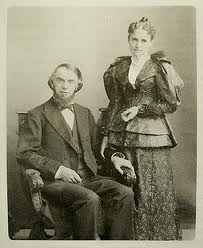
Br. Charles Russell—the founder of the Bible Students movement, who is the compiler of “Poems and Hymns of Millennial Dawn” which was published in Allegheny, Pa., in 1890. This Bible Students’ devotional originally contained a total of 151 poems and 333 hymns.
The following prefatory to the 1905 publication of Hymns of Millennial Dawn may be of historical interest to many of our readers.
We published in 1890, with several more recent editions, a volume entitled “Poems and Hymns of Millennial Dawn” without music. The same collection of hymns with the music is now urgently needed, and therefore appears in this volume. The poems, although highly prized, are omitted for greater convenience in size. We have preserved the same alphabetical order, because so many of our readers have the older book; and where a different tune is given from that originally suggested the latter is indicated by Alt. for alternative tune, with the number where that tune can be found.
Both words and music are credited to the same class to whom the work is dedicated-to the Lord and His faithful people, “the Saints.” The authors of many of the best of them are unknown to us, and, besides, slight changes have been made in the phraseology and sentiment of quite a number, which we could not be sure their original authors would approve, and to give personal credit to less than one half would seem invidious. To all of these dear “Saints” of all ages we therefore give united and hearty thanks for the blessings which they, as the Lord’s servants and handmaidens, have bestowed upon their fellow-members of “the Church of the Firstborn, whose names are written in Heaven.” Most of them died long ago: their abundant reward will be of the Lord in the resurrection.
That the collection is thoroughly undenominational, unsectarian, will be manifest to those recognizing the fact that it includes the choicest old hymns and tunes used by all denominations.
Although we have gathered far and near and winnowed carefully we cannot hope to have gotten all the golden grains, though we do hope that no chaff can be found. The collection is for the Church, for “believers” “reconciled,” and hence contains none of the “sinners” hymns, such as “Come, ye sinners poor and needy,” because willful sinners are in no sense members of the “Body” of Christ, nor are those who have not yet accepted the Lord as their Savior.
Those who will feel the deepest interest in this collection, and whose sentiments will be most fully voiced in its verses, will undoubtedly be those in fullest degree of sympathy with the divine plan of the ages, as set forth in the several volumes of Millennial Dawn—the eyes of whose understanding have been opened to the clearer, purer light now shining from our great Redeemer’s cross, showing the fulness and the completeness of his salvation.
In fact, this volume, while not numbered as one of the volumes of the Millennial Dawn series, is designed to be a companion volume, a melodious accompaniment to the “new song,” “the song of Moses and the Lamb” (the grand harmony of the Law and the Gospel), as presented in the regular Dawn series.
Let the music of God’s good and great plan ring through your hearts and lives, dear fellow-pilgrims and fellow members of the “royal priesthood,” so that every day and every hour shall be filled with joy and praise and thankfulness! And that this little volume may assist in deepening the work of grace in your hearts is our hope and prayer.
– Watch Tower Bible and Tract Society, July, 1905, Allegheny, PA, USA
——-
Later on, the hymns from this book formed a basis for the hymnal titled “Hymns of Dawn” which was published by the Dawn Bible Students Association in East Rutherford, New Jersey (USA) and the 1999 edition contains a total of 361 hymns.
Suggested Further Reading
A Special Calling by Br. David Rice. The Herald of Christ’s Kingdom. July /August 2016.
https://herald-magazine.com/2016/07/01/the-bride-class/
The Bride and the Bridegroom by Br. Carl Hagensick. A Verse-by-verse Study of Psalm 45. The Herald of Christ’s Kingdom. July/August 2004.
http://www.heraldmag.org/2004/04ja_4.htm
THE BIBLE — The World’s Best Model. Here is Why.
A Chaste Virgin. The Herald of Christ’s Kingdom.
http://www.heraldmag.org/literature/chliv_38.htm
Christ and His Bride. BIBLE Students DAILY.
https://biblestudentsdaily.com/2017/06/25/christ-and-his-bride/
His Loving Kindness – Hymns of Dawn No. 19
NEHEMIAH 8:10 — The Joy of the Lord Is Your Strength
Water From the Rock
He Restoreth My Soul
The Expanse of Divine Love
Hope Beyond the Grave. A Dawn Bible Association Publication. http://www.dawnbible.com/booklets/grave.htm
Who We Are. BIBLE Students DAILY – https://biblestudentsdaily.com/category/who-we-are/
Our Beliefs — What Does the Bible Teach Us?
https://biblestudentsdaily.com/category/beliefs/
Bible Students’ Links and Bible Study Resources
https://biblestudentsdaily.com/category/links/
This post’s URL:


